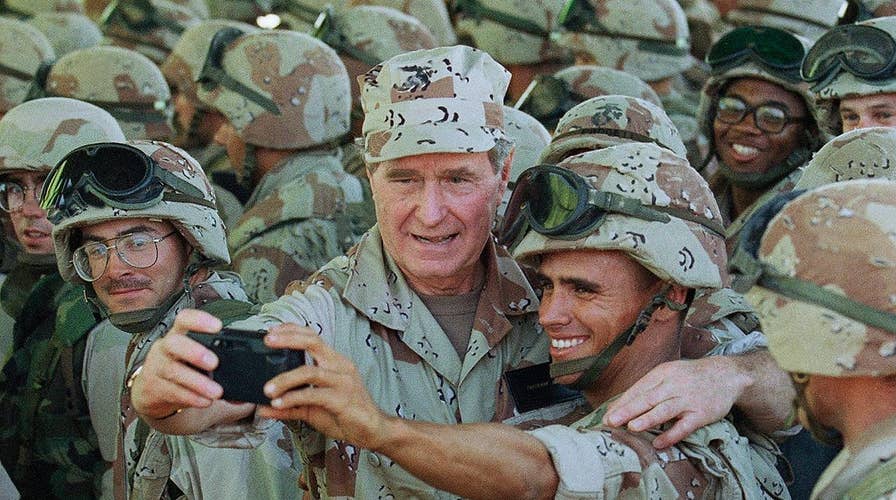George H.W. Bush and the Cold War
Greg Palkot breaks down international reaction to the former president's death.
What are the three most glorious moments of American diplomacy? One is the Revolutionary War, when the Founding Fathers roped France into an alliance against Britain that saved the novus ordo seclorum from death in infancy. Another is the Louisiana Purchase, by which Thomas Jefferson doubled the size of the country for a mere $15 million (around $300 million today). The third was a triple win engineered by George H.W. Bush: victory in the Cold War, the reunification of Europe and Germany, and the collapse of the Soviet Union on Christmas 1991.
The 41st president, who couldn’t always get his sentences straight, wasn’t foreordained for history’s hall of fame. Amid rising deficits and unemployment, Bush lost the 1992 election to a little-known Democrat by the name of Bill Clinton. Yet as his secretary of state, James Baker, put it in 2013, Bush “was the best one-term president the country has ever had, and one of the most underrated presidents of all time.”
George H.W. Bush may have stumbled at home, but he was a superstar on the international stage. He made an impossible dream come true. Wasn’t Europe’s partition forever? Why would the Soviet empire, stretching from East Berlin to Vladivostok, disgorge half of Europe, its booty from World War II? On 41’s watch, it did.
Great powers never die in bed. Think about Rome falling to Germanic tribes or the violent demise of the Wilhelmine, Tsarist, Habsburg and Ottoman empires in World War I. Yet the Soviet Union expired without a shot being fired -- a historic first.
To continue reading from The Wall Street Journal, click here.

